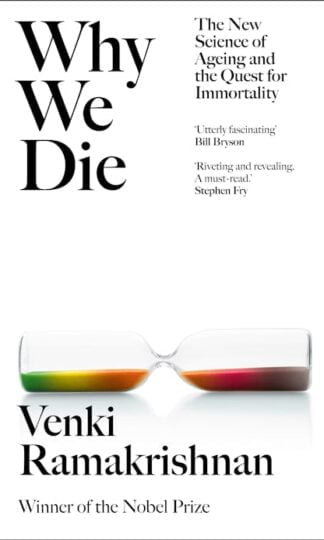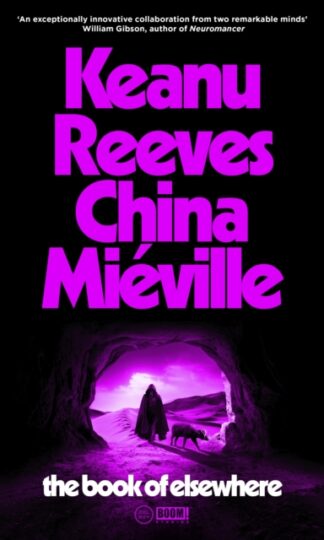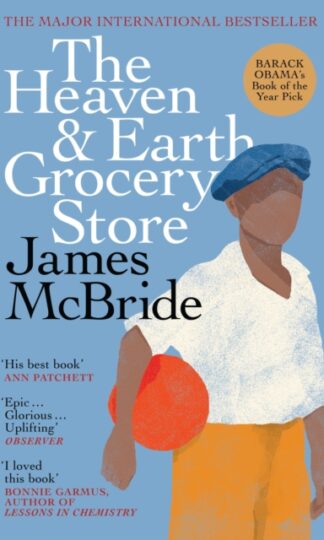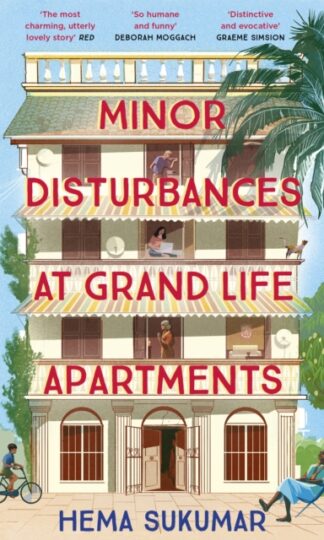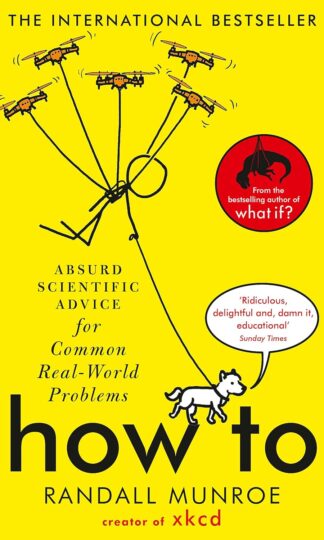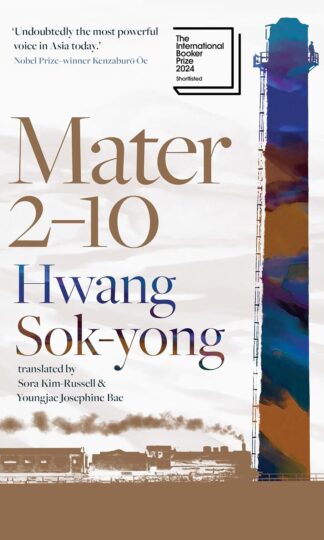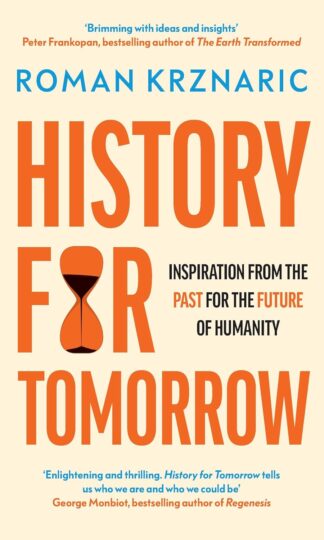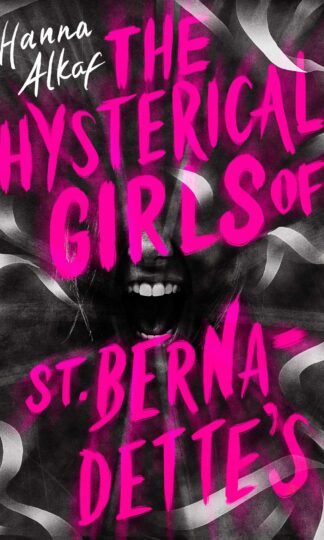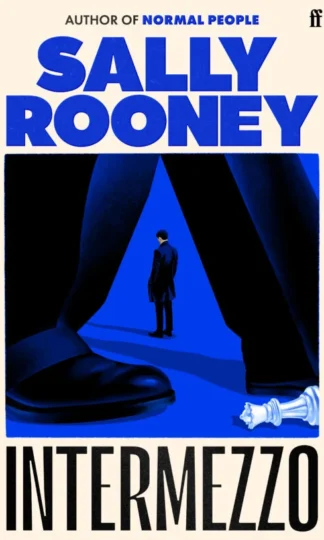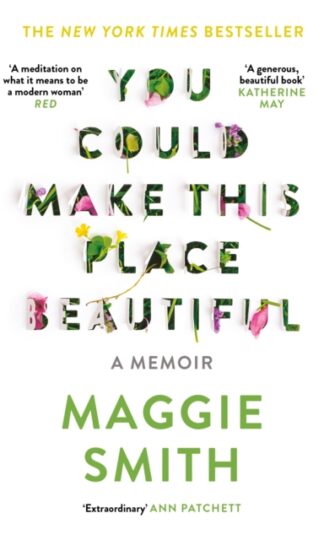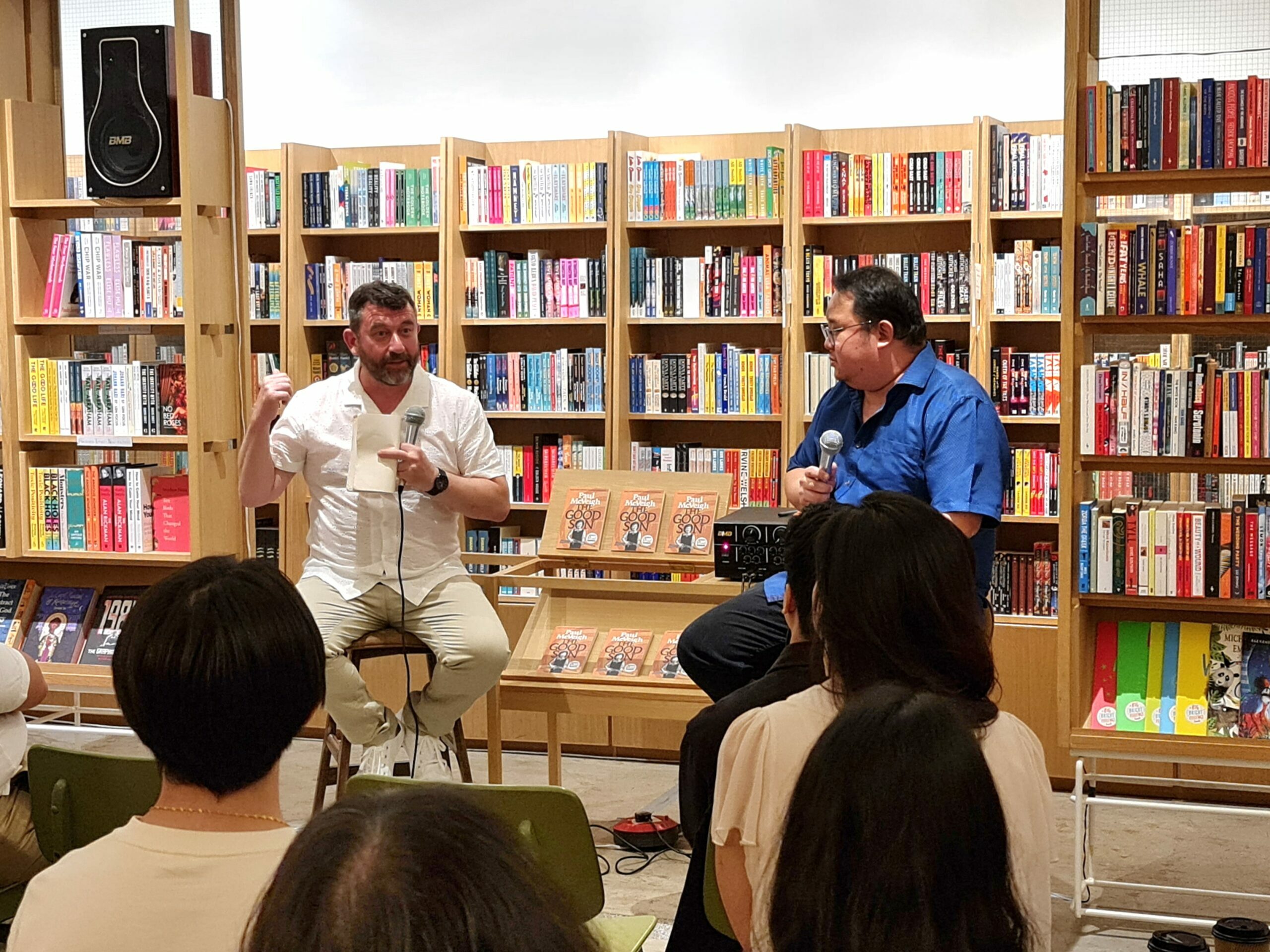
Belfast writer Paul McVeigh made a name for himself as a playwright and writer of comedy shows before he penned his first novel, The Good Son, published in 2015. The novel, which won the Polari Prize and the McCrea Literary Award, is a coming-of-age story of 11-year-old Mickey Donnelly set in Belfast during The Troubles. It is an evocative, thoughtful and well-written book that’s full of humour despite the bleakness of its setting.
We had the privilege to host Paul in an author event at Lit Books on 17 June, 2023, where he charmed us with his warmth and wit. The novel is very much drawn from his own experience of growing up in Belfast during this horrific period of Northern Ireland history, and he tells us that humour was a survival mechanism. He shared with us stories from his life in the hour-long conversation with Min Hun and our audience – the following are edited excerpts from the session.
On the history and personal background that informs the book:
I was born in 1968 and that is recognised as the beginning of The Troubles. I thought if I was going to write a book, everything in it I would have to know is absolutely true. In order to do that, I thought I would set it where I grew up and in the environment I grew up in… In Belfast, it was war but they never called it that. They called it The Troubles, which makes it sound like something a little bit annoying, like bad traffic. It minimised what it was – it was actually a war and it was absolutely barbaric.
Where I was born, in Ardoyne, which is where the book is set, at the bottom of my street there were walls and barricades so I couldn’t get out. At the top of my street there were walls and barricades and I couldn’t get out. Two streets away was a Protestant community, and three streets another way was a Protestant community. Ardoyne was unique in that we were surrounded by our enemy. It was like an open-air prison.
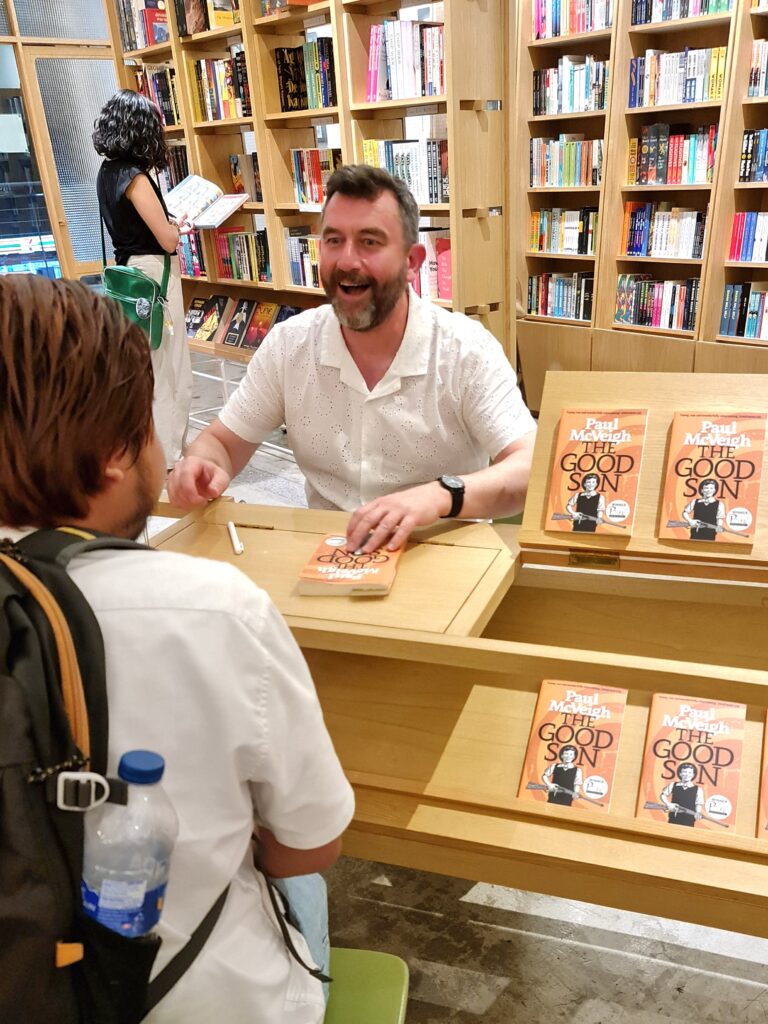
The second and probably more damaging thing, because it affected everyone’s psyche, was you couldn’t be different. Any difference was not tolerated at all. You couldn’t have your hair different, you couldn’t wear different clothes, you couldn’t be LGBT, you couldn’t be artistic, you couldn’t want an education because somehow that was an insult. If you wanted an education, you were trying to better yourself and that meant where you were at wasn’t good and you want to be better than that. So you couldn’t do well or stand out in any way – it was really oppressive.
On how this novel came about:
I was a playwright and I wrote for stand-up comics. After one of the shows, someone asked if I would like to write a short story. One of the major repercussions of growing up working class is that you never think you could be a writer. You think you’re stupid so how could you write a book? When these people asked me, I was a writer already for comedians and for plays where you could write and be inarticulate. You can just say funny things, you can use bad grammar and have a limited vocabulary… When they asked me to write a short story, I thought I was never going to be able to because I had no confidence even though I had been up for awards for these comedy shows and plays. I don’t know how to write a sentence that describes anything; I only write dialogue. And so, I said I’ll cheat – I’ll write in the voice of a little boy and he can make loads of mistakes. So the whole book is a monologue of him thinking. That is genuinely why I wrote the initial story [that became this novel].
On the experience of writing a novel derived from personal story:
It was quite a traumatic experience writing the book, I’ll be honest… When I was reliving those things I was thinking, I can’t believe I just accepted that as normal, you know? But growing up during The Troubles, we didn’t know any different… When I was writing this, it was just a litany of the most horrible things. I had to rewrite it and remember that each page had to have laughter and love. It really is funny, the book. It sounds depressing but there are a lot of jokes in it.
On the protagonist Mickey Donnelly:
I think he’s an absolute hero because when everyone’s telling you you’re wrong but you know you’re right, you put up with all sorts of abuse because you know in your heart that you’re right. He protects his family – he makes massive sacrifices to protect his mother and his little sister. He does things that are going to affect him for the rest of his life but he has no idea. He will go through all that torture because he refuses to be cruel and he refuses to be nasty and harsh. There’s another way, there’s love… he’s gonna take on The Troubles, he’s going to take on Ardoyne and the way people behave, and he’s going to say, ‘You’re the one that’s going to change’.
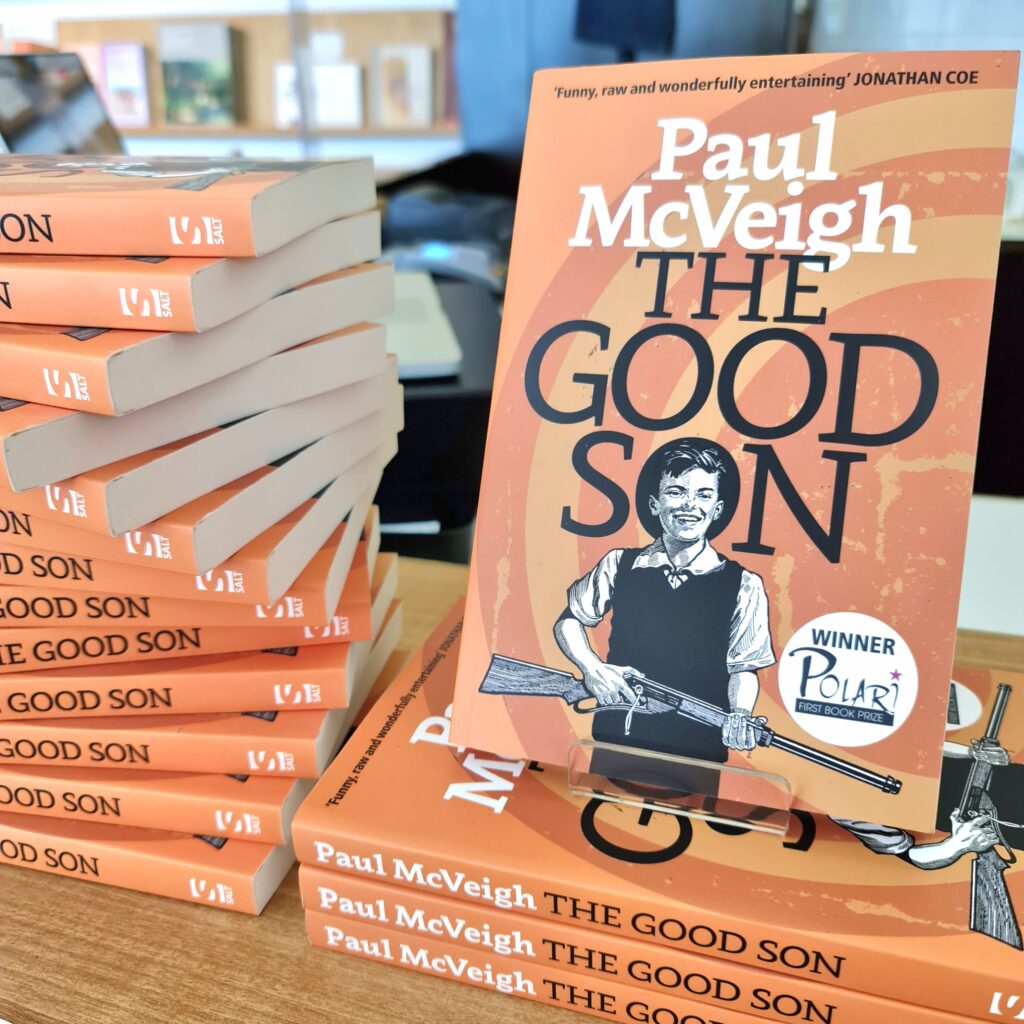
On modelling Mickey’s mother after fierce and courageous women:
My mom was fierce. It was women who ended The Troubles. it was women that got Catholics the vote. Everyone thinks The Troubles started because the IRA started shooting and bombing people. The Troubles started because of the right to vote [Catholics didn’t have the right to vote at the time]. It was started by a 16-year-old girl who got a march going from Belfast to Derry for the right to vote, housing and the right to get a job. It was a human rights march, happening at the same time for black people in America. It was women who did it… They would take on the world to protect you.
Signed copies of The Good Son is available in-store and online, while stocks last!

